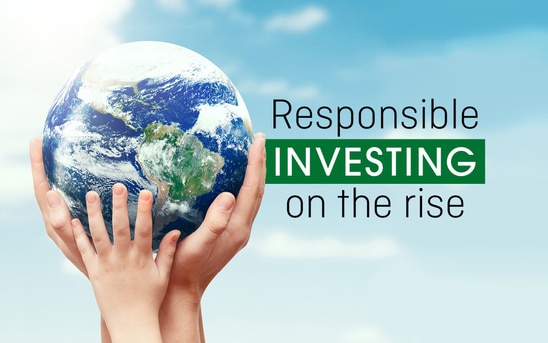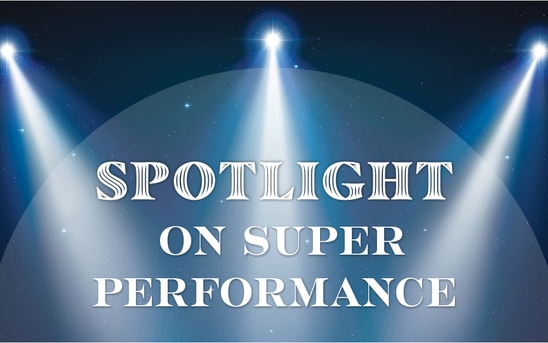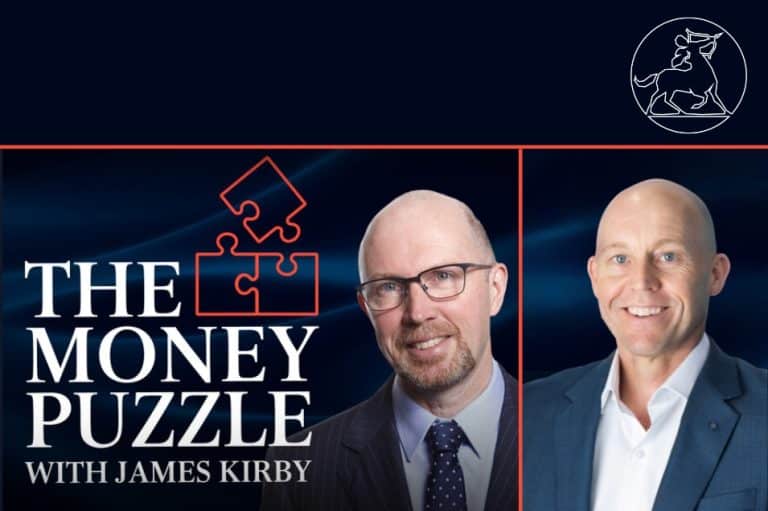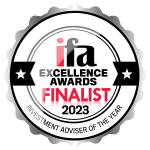It’s October and with grand finals season almost over the countdown to summer begins. Despite ongoing lockdowns, rising vaccination rates are paving the way for the re-opening of borders and business.
September was a mixed bag on the economic front. After reaching record highs in August, global sharemarkets stumbled in late September. There are concerns about rising inflation and bond yields if the US Federal Reserve begins tapering their bond purchases later this year as expected. Markets also grappled with rising COVID cases, the potential collapse of the Chinese property developer Evergrande, supply chain blocks and rising oil prices. The US S&P500 and the Australian ASX200 finished the month down 5% and 3% respectively.
In Australia, consumer confidence is growing in response to State and Federal governments revealing their re-opening plans. The ANZ/Roy Morgan consumer confidence rating rose over the last three weeks of September to a 10-week high of 103.7. Prior to that, retail trade fell 1.7% in August and 0.7% over the year. And while the unemployment rate fell from 4.6% to 4.5% in August, participation and hours worked all fell. This reflects the large numbers of Australians who have been stood down due to COVID but not actively seeking work.
On commodity markets, oil prices surged almost 10% to three-year highs in September. That pushed up local petrol prices, with unleaded petrol at record highs in some cities. Meanwhile, iron ore prices fell 25% in September on falling Chinese demand. This put downward pressure on Australian mining shares and the Aussie dollar, which fell by one cent to finish the month at US72.2c.

Responsible investing on the rise
For many people, there’s much more to choosing investments than focusing exclusively on financial returns. Returns are important, but a growing number of people also want their investments align with their values.
Everyone’s values are different but given the choice most people would wish to make a positive difference to their community and/or the planet. Or at least to do no harm.
Indeed, four out of five Australians believe environmental issues are important when it comes to their investment decisions.i
As a result, there has been a surge in what is called responsible investing. Also known as ethical or sustainable investing, responsible investing includes investments that support and benefit the environment and society, rather than those whose products or way of conducting business have a negative impact on the world.
Millennials driving growth in sustainability
The trend toward responsible investment is growing rapidly. According to the Responsible Investment Association of Australasia (RIAA), Australians invested $1.2 trillion in responsible assets in 2020.ii While money flowing into Australian sustainable investment funds was up an estimated 66 per cent in the year to June 2021.iii
Responsible investing is particularly popular among millennials, now in their late 20s and 30s and beginning to get serious about building wealth. Many in this group are getting a foot on the investment ladder via exchange-traded funds (ETFs). A recent survey of the Australian ETF market found 28 per cent of younger investors had requested more ethical investments.iv
More sustainable investment options
As awareness of responsible investing grows, so does the availability of sustainable investment options, beginning with your super fund.
Most large super funds these days offer a sustainable option on their investment menu. While relatively rare even 10 years ago, the availability and performance of sustainable options has grown strongly over the past three to five years.
According to independent research group, SuperRatings, the top performing sustainable options now surpass their typical balanced style counterparts in some cases.v
If you run your own self-managed super fund (SMSF) or wish to invest outside super, there is a growing number of managed funds that actively select sustainable investments, or ETFs that passively track an index or sector.
There were 135 sustainable funds in Australia and New Zealand in 2021, so there is plenty of choice.iii
How to screen
So how do you find the ethical investments that best suit your values?
There are several methods used with the most common being negative screening. This is where you exclude investments in companies engaged in unwelcomed activities such as gambling, tobacco, firearms, animal cruelty, human rights abuses or fossil fuels.
Positive screening is the opposite, where you actively seek out investments in companies making a positive contribution. Some examples might be companies involved in renewable energy, health care or education.
Another criterion is to look at companies that monitor their environmental, social and governance risks. This cuts across all industries and is more about the way the company conducts its business.
Environmentally they may monitor their carbon emissions or pursue clean technology, socially they may be active in ensuring a safe workplace and on the governance front they may pursue board diversity or anti-corruption policies.
Greenwashing on the rise
As the popularity of responsible investing grows, so do concerns about the practice of so-called greenwashing. This is where a company or fund overrepresents the extent to which its practices live up to their promises. The Australian Securities and Investments Commission (ASIC) recently announced a review into the use of greenwashing in Australia, prompted in part by the demand for such funds.iii
Another trend is impact investing in companies or organisations helping to finance solutions to some of society’s biggest challenges. This might include investments in areas such as affordable housing or sustainable agriculture.
Solid returns
While some investors are driven by their values alone, many more want value for their money. The good news is that it’s possible to have it both ways.
The RIAA survey found super funds that engage in responsible investments outperformed their peers over one, three and five years. Clearly responsible investing is a trend that is gaining momentum, with the financial performance of sustainable investments attracting a wider following.
If you would like to discuss your investment options and how they might fit within your overall portfolio
i https://www.canstar.com.au/investor-hub/ethical-investing/
ii https://responsibleinvestment.org/resources/benchmark-report/
iii https://www.morningstar.com.au/funds/article/australias-sustainable-funds-market-is-growin/214505

Spotlight on super performance
Superannuation has provided most fund members with stellar returns since last year’s COVID lows. As always though, some funds performed better than others and recent government reforms make it easier to find out how your fund compares.
Indeed, you may have noticed recent media reports naming 13 super funds that failed a performance test conducted by the super industry regulator, the Australian Prudential Regulation Authority (APRA).
While the news may have come as a shock to members of those funds, it’s important to understand the aims and limitations of the new test.
Background to super reforms
Under the federal government’s Your Super, Your Future reforms passed in June, super funds that fail to meet an annual performance test must notify their members about their underperformance. Funds that fail the test for two consecutive years won’t be able to accept new members until their performance improves or they merge with another fund.
The government has also made it easier to compare funds. As of July 1, anyone can jump onto the ATO’s new YourSuper comparison tool, which ranks funds by fees and investment returns. For now though, the tool only compares MySuper funds which are the default products for employees who don’t choose a fund.
While it’s hard to argue with any initiative that aids transparency and protects people from poorly performing super funds, caution is needed when interpreting the super tool.
Compare like with like
When you compare super funds, it’s important to compare like with like. Awarding funds a simple pass or fail does not take into account a variety of factors such as the risk and return trade-off in investment options and whether the fund is a lifecycle product that reduces risk as a member ages.
Conservative options with a higher percentage of cash and fixed interest investments tend to deliver more modest returns in the long run but with a smoother ride along the way. Whereas balanced and growth options with a higher allocation to shares may deliver higher returns in the long run but with more volatility.
That means a fund may underperform in the short term but still provide members with their desired level of risk and returns. Working out the most appropriate option for you will also depend on when you plan to retire and how much longer your money will be invested in the market. Generally, the shorter your time frame, the more conservative you are likely to be.
The YourSuper comparison tool also doesn’t consider the value of insurance offered by funds or other member services.
The value of advice
While the government’s super reforms are aimed at those who may not be engaged with their super or understand how their savings are being managed, you don’t need to go it alone. This is where our expertise can assist, ensuring your choices are tailored to your circumstances and guiding your decision.
In fact, a recent study by Russell Investments quantified the value of advice. It found that financial advisers added an estimated 5.2 per cent in value to their clients’ portfolios in the tumultuous period from the beginning of the pandemic through to the market’s stunning recovery by mid-2021.i
The report broke down this figure of 5.2 per cent into five key elements:
-
- Preventing behavioural mistakes, like switching to cash and crystallising your paper losses after a market fall (2 per cent)
-
- Advising on appropriate asset allocation (1.1 per cent)
-
- Optimising cash holdings (0.6 per cent)
-
- Tax-effective investing and planning (1.5 per cent)
-
- Expert wealth management knowledge derived from years of market experience – priceless.
The report found the beneficial impact for an investor who started 2020 with a portfolio worth $250,000 and stayed in the market until 31 May this year – rather than switching to cash when markets were volatile in March 2020 – was as large as $40,000.
The bottom line
It’s important for all investors to understand how their super is performing. Even more important though, is having a financial plan that takes into consideration not just your choice of super fund, but all your personal goals and circumstances.
If you would like to discuss your super in the context of your overall investment strategy, give us a call.
i https://russellinvestments.com/us/resources/financial-professionals/value-of-advisor

Decision making your way to the best outcome
Throughout our lives, making a decision is something we do thousands of times a day. Our first thought occurs as soon as we wake, and our final thought when we drift off to sleep. Researchers have found on average, that most people will have approximately 6,200 thoughts per day.i
Having so many thoughts requires us to make thousands of decisions. Whilst majority of these decisions are simple and will have no significant consequence, there are times when more difficult and complex decisions will need to be made and require creative thinking techniques and a deeper thought process to ensure a more successful outcome.
Deep thinking vs shallow thinking
Two types of methods can be used when it comes to decision-making and while neither is right nor wrong, it’s important to understand the difference between the two and choose the method that works best for you and the situation. After all, if we all thought the same way, life would be pretty boring right?
Deep thinking requires effort and mindfulness and someone who is considered a deep thinker will usually look at the whole chain of events throughout this thought process. They will explore different pathways to reach different outcomes and have a greater understanding of the consequences based on that specific decision.
Contrary to deep thinking is shallow thinking, and these decisions are instinct-driven – they are made immediately. This type of thinker is decisive and won’t necessarily spend time exploring different pathways to reach an outcome or consider the consequences of their decisions as much as a deep thinker would.
Can you learn to become a deep thinker?
Some may say, with so much technology and information on hand, shallow thinking is now far outweighing the deep thought process and we are losing the ability use these creative thinking skills to make certain choices. Our attention span is limited; we are distracted easily therefore, our thought process is constantly being interrupted, meaning we spend less time thinking about the outcomes of the choices we are making.
There are several steps you can implement to learn how to become a deep thinker. Firstly, you must fully understand the situation in detail – what is being asked and what impact it will have – only then, can you spend time creating a constructive environment to make decisions. In creating a constructive environment, you will need to determine whether other people should be included in this process.
By including others, you have the opportunity to take into account other people’s ideas. This is a fantastic way to explore ideas that you may not have previously considered and give the process the time and attention it deserves. Once you have reviewed all options, you can determine the risks and impacts of each, then decide what the best outcome is likely to be.
Alternate ways to make decisions
Some decisions won’t be as complex or require the same level of creative thinking to make the right choice. Some alternate options could be as simple as – sleep on it. While this may seem like a ‘no brainer’, this can be one of the most effective ways to make a decision. While you are sleeping, your subconscious is still hard at work.
Talk to friends, relatives, or colleagues whose opinion you value – they can offer a different perspective if you are unsure about your decision.
Schedule a specific time in the day to help you focus – do you do your best thinking in the morning, afternoon, or evening. Remember, to focus completely, you need to remove all distractions during this time – turn off your email notifications and put your phone on silent.
If the decision is work-related, try delegating tasks as this could help reduce stress if work is piling up.
Change your environment – going for a walk or meditating can help you relax which then allows you to free space in your mind and shed new light on the way you think.
No right or wrong
Remember, there is no right or wrong when it comes to making decisions. Whether they are personal or business-focused, by applying some of these methods, you may alleviate stress and reach a better outcome when you next make a decision.





































































